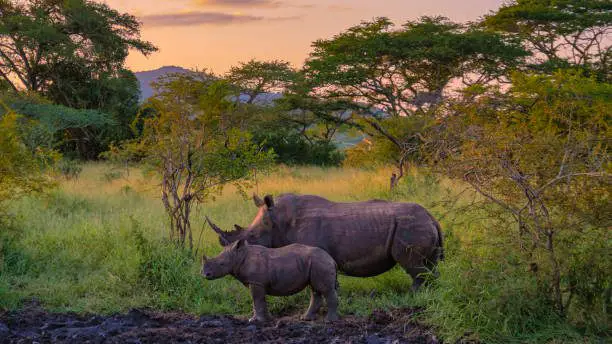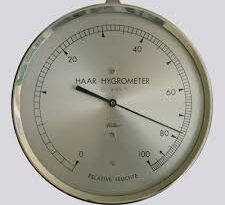Effects of Global Change on Terrestrial Biosphere (Ecosystems)
Ecosystems affect biogeochemical and physical feedbacks to the biosphere and atmosphere, hence are important for the functioning of the Earth’s systems. Ecosystems provide many products and services that are crucial to human survival (Daily, 1997; UNEP, 1998; WRI, 2000).
Recent estimates indicate that 25% of the world’s mammals and 12% of birds are at significant risk of global extinction. Climate change is only one of a long list of pressures on wildlife.
Other pressures include exploitation of animals, pollution and other biochemical poisonings, extreme climatic events, wildlife diseases, collisions with towers and other structures, anthropogenic barriers to dispersal, and war and other civil conflicts.
Alone or in combination, these pressures will greatly increase species vulnerabilities to rarity and extinction (high confidence).
Terrestrial Biosphere
Terrestrial ecosystems consist of plants, animals, and soil biota and their environment. The distribution of biota within and across ecosystems is constrained by the physical and chemical conditions of the atmosphere, the availability of nutrients and/or pollutants, and disturbances from natural origin (fire, wind-throw, etc.) or human land use.
Global Change Effect
Global climate change, for example, affects local weather and climate in ways that are strongly dependent on location.

In trying to understand the effects of global change on the biosphere as a whole, scientists often focus on higher level entities such as ecosystems or biomes (the collection of ecosystems within a particular climatic zone with similar structure but differing species, e.g., the temperate forest biome).
Climate Change
Climate change is the changes in temperature, precipitation, local extreme climatic events, elevated co2, and others.
Land and water use change
This will lead to increased forest cover for additional fiber and biofuels, recreation, conservation, aquaculture, irrigated agriculture, power production.
Habitat changes
Through changes in ice cover, water flow, storms, floods, cloudiness.
Changes in disturbance regimes
This include types, intensity, and frequency for events such as fires, floods, blow downs, insect herb ivory, pests.
Read Also : Benefits of Forest and Wildlife Resources
Climate feedbacks
These are processes by which climate change influences some property of the Earth system which, in turn, either diminishes or amplifies the change. Diminishing feedbacks are called ‘negative’ and amplifying feedbacks are called ‘positive’.
Policy implications
Biosphere feedbacks influence the relationship between emissions (of co2 and other GHGs) and concentrations, which are what determine the greenhouse effect and thus the effect of emissions on climate.
Biosphere feedbacks are therefore directly relevant for mitigation policy. Uncertainty about the magnitude of feedbacks is a problem for climate policy because the usefulness of climate projections is limited if the quantitative relationship between emissions and concentrations is unclear.
Potentially large positive feedbacks are of particular concern, as positive feedbacks mean that more stringent emissions reductions are required to stabilize climate at any specified level.
Moreover, multiple positive feedbacks are mutually reinforcing because of the non-linear relationship between temperature increase and gain. We have attempted to quantify the various feedbacks that have been proposed to be large – thus, those of greatest policy relevance.
Read Also : Parasitic Diseases of Livestock and Control Measures



